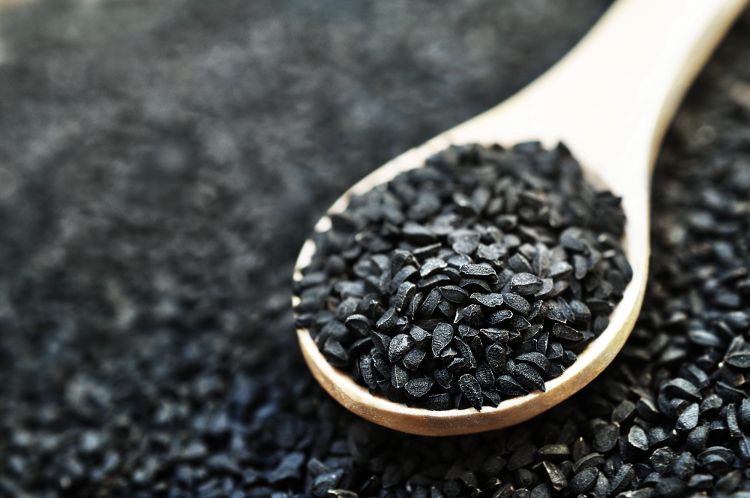Branded black cumin seed extract shows potent anti-inflammatory activity in asthma-related mediators in in vitro study
Sabinsa's branded black cumin seed extract showed significant anti-inflammatory ability on asthma-related mediators of inflammation.
Photo © Shutterstock.com/Ulada

Sabinsa Corp. (East Windsor, NJ) reports that its branded black cumin (Nigella sativa) seed extract, Nigellin BCS, was the best-performing black cumin seed extract used in an asthma-related study recently published in Frontiers in Pharmacology1. The in vitro study evaluated 10 different preparations of black cumin seed extract and their potential effects on asthma-related mediators of inflammation. Researchers measured all the extracts’ thymoquinone (TQ) content, the key active ingredient in black cumin seed. Nigellin BCS was found to have the highest TQ content of all the extracts (at 2.4%); the next closest extract had a 0.7% TQ content, a 300% difference, says Sabinsa.
“This emerging antioxidant ingredient has traditionally been used in the management of numerous health conditions, with recent research beginning to validate historically reported benefits,” said Sabinsa founder Muhammed Majeed, PhD, in a press release. “Sabinsa has a track record of developing and marketing products for supporting human health rooted in traditional knowledge expanded through innovation. In this case, we relied upon use of supercritical fluid extraction (SCFE) technology to provide an active solution.”
When testing the extract on inflammatory mediators, Nigellin BCS suppressed IL-2 in T-lymphocytes by more than 50%, reduced IL-6 by more than 50% in T-lymphocytes and monocytes, and sparked a more than 50% reduction in PGE2 in T-lymphocytes and monocytes. In human lung epithelial cells, none of the extracts showed a significant reduction in inflammatory compounds, but Nigella BCS was one of six extracts that induced PGE2 by more than 150%. Sabinsa says that this may be beneficial as PGE2 does exhibit bronchodilatory effects in human lung epithelial cells.
While this is not a human study, the results suggests a potential benefit for people with asthmatic conditions who supplement with black cumin seed extract, says Sabinsa. Further study will be needed to confirm this.
References:
1. Koshak AE et al. “Comparative immunomodulatory activity of Nigella sativa L. preparations on proinflammatory mediators: a focus on asthma.” Frontiers in Pharmacology, vol. 9 (2018)
2 Commerce Drive
Cranbury, NJ 08512
All rights reserved.